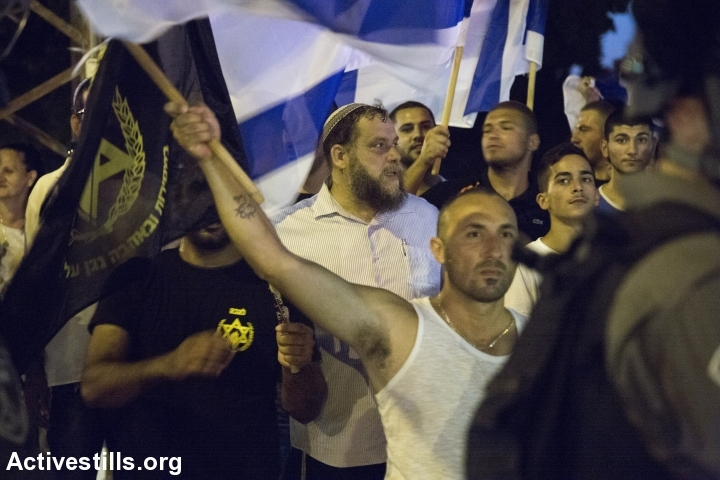The decision to prevent high schools from teaching a Jewish-Palestinian love story might sound like an innocent attempt at promoting Jewish continuity. In fact, it’s the sound of Israel’s extreme right going mainstream.

Israel’s Education Ministry announced Wednesday that it would ban Israeli high schools from teaching a novel about a love affair between a Jewish woman and a Palestinian man.
The decision was made despite the fact that the book, Dorit Rabinyan’s “Gader Haya,” was recommended for use in advanced literature classes by numerous bodies — including a professional committee of academics and educators — at the request of a number of teachers. Education Minister Naftali Bennett has backed the ban.
By preventing Israeli teenagers from reading the book, the ministry is hoping to instill in them the notion that “intimate relations” between Jews and non-Jews threaten what it calls “a separate identity.” In doing so, the ministry charged with deciding the content of Israelis’ educational curriculum has gone beyond the scope of its responsibilities and is now actively trying to influence Jewish students’ romantic decisions.
Gader Haya is far from the first Israeli novel taught in high schools to tell the story of Jews who fall in love outside the religion — sometimes even with Arabs.
To be sure, the Education Ministry’s decision has very little to do with the novel in question, and it is no coincidence that the ban pertains specifically to a book featuring a love story between a Jewish woman and a Palestinian man. This is a trope that has become synonymous in Israel with the patriarchal, racist idea that Jewish women must be protected from the savage Arab — always on the prowl for his next victim — whom he seeks to convert to Islam and steal away to his village.
If this sounds like exaggeration, it is not. A 2007 poll revealed that over half of Israelis view the marriage of a Jewish woman to an Arab man equal to national treason. Considering the country’s rightward shift over the past decade, that has likely become even more entrenched.
The Education Ministry’s decision is all the more disturbing when we consider the fact that polls consistently show that the majority of both Jewish and Arab citizens oppose intermarriage. Novels that allegedly encourage miscegenation should thus be of no threat to a population actively opposed to marrying outside the religion. So what gives?

The past few years have seen the rise of anti-miscegenation politics in Israel, most prominently by Lehava — an organization run by radical settler Benzi Gopstein, who most recently called for expelling the “blood sucking” Christians from the country. What started as a fringe group seeking to convince Jewish women to end their relationships with Arab partners — often using real violence against the man — has morphed into self-styled brigades that roam the streets of Jerusalem looking for Palestinians to attack. The logic of Lehava’s anti-miscegenation activities is undergirded by the total dehumanization of the Palestinian man, to the point that he remains a target even when he is uninvolved with Jewish women.
On the face of it, the decision to ban Rabinyan’s novel could seem like an innocent attempt at molding the minds of young Israeli Jews toward a future of Jewish perpetuity. In reality, however, the man in charge of our children’s education is now adopting the rhetoric of Israel’s most unabashedly vile racists. This is how the extreme right — the one we are repeatedly told is on the margins of Israeli society — becomes mainstream.



